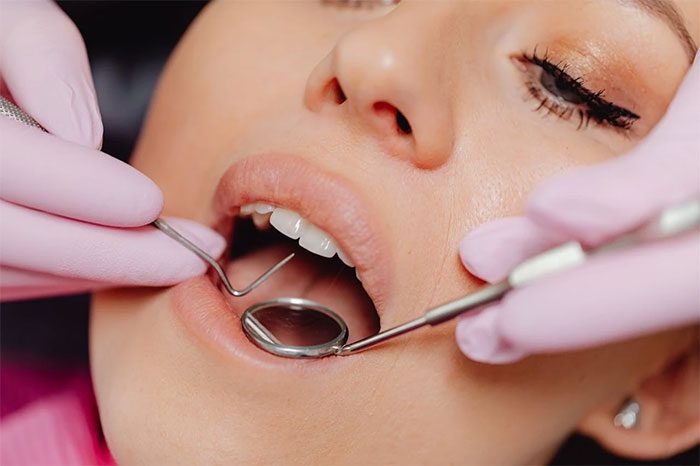Most snacks, even sugar-free ones, can still lead to cavities.
According to dentist Ho Han Quan, a practitioner at a dental clinic in Cuu Long (Hong Kong, China), some patients experience tooth decay and even necrotic teeth without any painful symptoms.

Most of us suffer from tooth decay due to our eating habits. (Photo: Pexels).
Each individual’s condition varies; some may only feel sensitivity when consuming cold drinks or sweet foods, while others might not experience pain until the later stages of decay.
Consequently, some patients who do not feel pain delay treatment until their gums are pus-filled or their faces are swollen. By then, the infection has spread, and the tooth’s dentin has been severely damaged, often resulting in extraction rather than the opportunity for filling or root canal treatment.
However, if a tooth has reached the decay stage, successful treatment and restoration are not straightforward.
Cavities Can Recur After Filling
Dentist Ho Han Quan states that neglecting oral hygiene and maintaining unhealthy eating habits can lead to recurrent cavities even in filled teeth.
While bacteria cannot erode filling materials, they can form cavities at the junction between the natural tooth and the filling. Therefore, it is crucial not to overlook dental care after a filling.
Additionally, if the cavity is too severe, the filling may not save the tooth. If the tooth nerve is overly inflamed, pain may occur post-filling, which might not manifest immediately but can arise after some time.
If this happens, you will need root canal treatment. A tooth with damaged pulp is easily compromised, so you will need a dental crown to protect it. In cases of severe tooth decay, extraction may be necessary to prevent infection.

According to the dentist, limiting the frequency of sugary snacks is more important than limiting the amount consumed. (Photo: Pexels).
Even Sugar-Free Snacks Can Cause Cavities
Most snacks, even those that are sugar-free, contain carbohydrates, such as potato chips, cookies, bread, instant noodles, etc.
Most types of carbohydrates carry varying risks for cavities, as bacteria digest them and release acids that can damage teeth. Among carbohydrates, saccharose and glucose are the most likely to cause cavities.
Eating Habits That Promote Cavities
Consuming food too frequently, including snacks and sugary drinks, means your mouth is regularly exposed to carbohydrates. Such a diet encourages the proliferation of cavity-causing bacteria.
While snacks or sweets are not good for dental health, it doesn’t mean we shouldn’t eat them. According to dentists, to control the risk of cavities, limiting the frequency of consumption is more important than limiting the quantity of sweets consumed.
Therefore, if you plan to have dessert, it’s best to do so immediately after a main meal. Typically, the recommended number of meals and snacks per day is three, not exceeding four.


















































